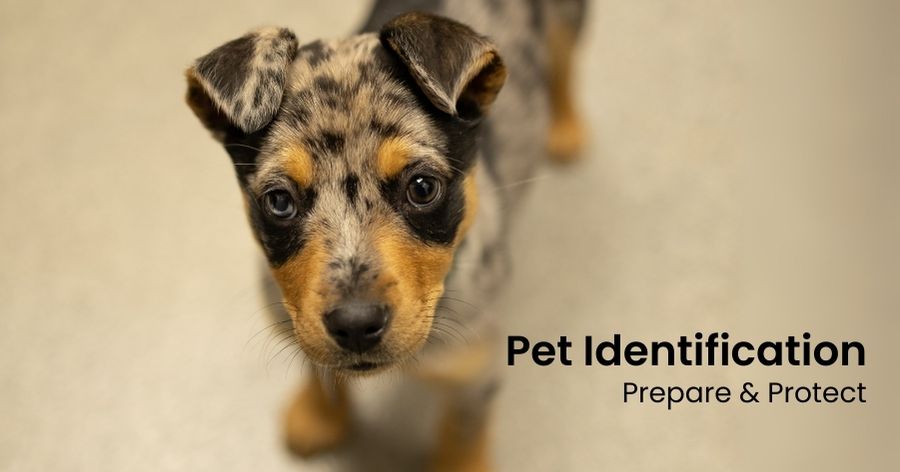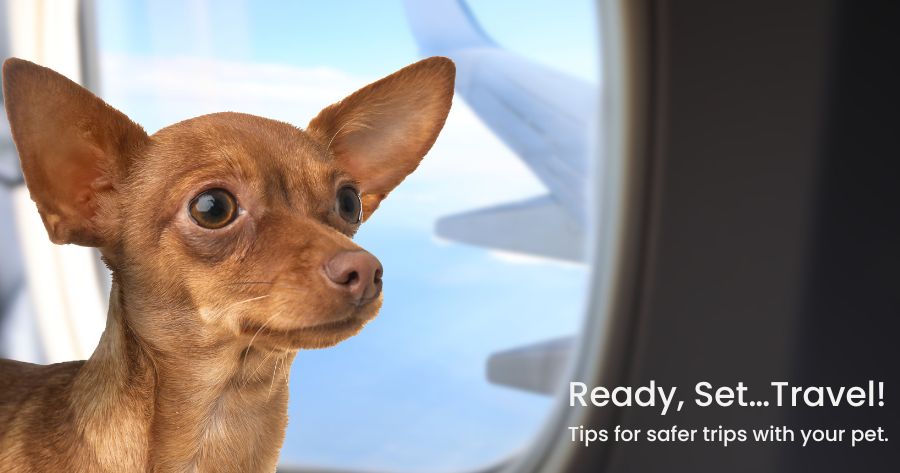
Pet owners everywhere fear that their furry friends will run off some day — and for good reason, as one in three pets are estimated to go missing in their lifetime.
In honor of National Pet ID Week, please join us for an exploration of how to prevent this situation or at least ensure that pets return home safe.
Collars have been a trusted method of identifying pets for thousands of years, dating back to ancient Egyptian and Greek times. Greek farmers even equipped their dogs with spiked collars to protect them from wolf attacks. Over time, collars became more than just protective gear — they evolved into a simple yet effective way to display important information about pets.
Collars today include tags labeled with:
The downside of collars is that they can easily be removed or get lost. In those cases, dogs and cats without identifying features are much less likely to be reunited with their owners.
Microchips offer a permanent, reliable form of identification that ensures your pet always has a way home. Unlike collars, they can’t be removed or lost, making them a crucial safety net if your pet ever goes missing.
While we hope your pet never goes missing, it’s best to be prepared.
Contact your pet's veterinarian today to schedule a microchipping appointment!


